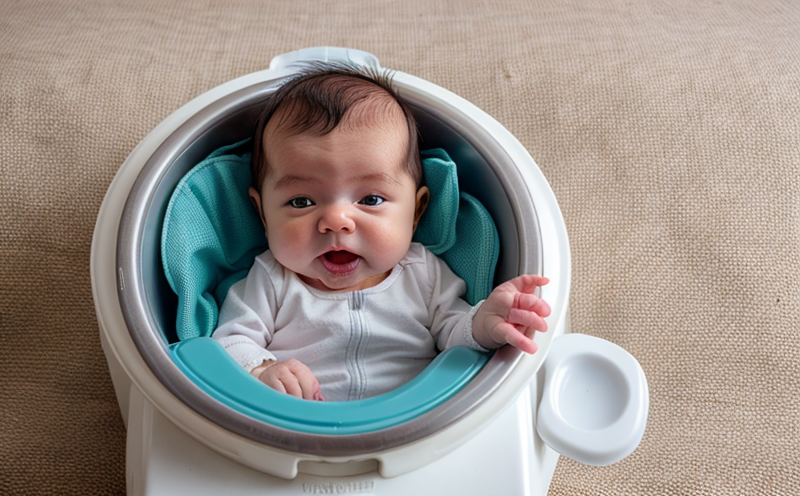Infant Formula & Baby Food Testing
In the realm of food safety and quality assurance, infant formula and baby food testing plays a pivotal role in ensuring the health and well-being of infants. These products are subject to stringent regulations due to their critical importance as a source of nutrition for young children. The primary focus is on assessing the presence of harmful substances, nutritional adequacy, and overall product safety.
The European Union (EU), through its regulatory frameworks like those set forth in Directive 2006/141/EC, emphasizes thorough testing to guarantee that infant formulas and baby foods meet high standards. This ensures that the products are free from contaminants such as heavy metals, pesticides, and other hazardous materials.
Additionally, these regulations mandate the presence of essential nutrients in specific quantities to support healthy development during critical growth stages. The tests conducted cover a range of parameters including moisture content, protein levels, fat content, vitamins, minerals, and more. These analyses are crucial for compliance with international standards like ISO 14215:2012.
The complexity of infant formula and baby food testing lies in its multifaceted approach to safety and nutritional adequacy. Rigorous testing ensures that the products not only meet legal requirements but also provide optimal nutrition for infants, helping to prevent deficiencies and promote healthy growth.
Testing procedures are designed with precision and care to address various potential risks associated with infant formula and baby food. This includes analyzing the chemical composition of ingredients, checking for allergens, and verifying microbial safety. The aim is to ensure that each product meets the highest standards of purity and nutritional balance.
The methodologies employed in these tests are based on robust scientific principles and internationally recognized guidelines. For instance, gas chromatography-mass spectrometry (GC-MS) is used for detecting trace levels of contaminants, while high-performance liquid chromatography (HPLC) helps in quantifying essential nutrients.
Understanding the complexities involved in infant formula and baby food testing also requires an appreciation of the diverse range of products available. From powdered formulas to specialized feeds, each has unique nutritional profiles that must be accurately analyzed. This comprehensive approach ensures that every product is safe for consumption by infants and toddlers.
Scope and Methodology
| Parameter | Description |
|---|---|
| Nutritional Analysis | Determining the presence and levels of essential nutrients like vitamins, minerals, and amino acids. |
| Microbiological Testing | Checking for pathogenic bacteria, yeasts, and mold to ensure product safety. |
| Toxic Metal Analysis | Identifying traces of heavy metals such as lead, mercury, and arsenic. |
| Allergen Detection | Detecting common allergens like milk proteins, soy, and peanuts to prevent adverse reactions. |
| Contaminant Identification | Identifying pesticide residues, mycotoxins, and other harmful contaminants. |
| Nutrient Profile Validation | Evaluating the consistency of nutritional content across batches to ensure uniform quality. |
Eurolab Advantages
At Eurolab, we pride ourselves on offering a comprehensive suite of testing services specifically tailored for the infant formula and baby food industry. Our state-of-the-art facilities equipped with advanced instrumentation ensure accurate and reliable results.
- Comprehensive testing covering all EU directives
- Experienced technical staff trained in the latest testing protocols
- Access to cutting-edge analytical equipment for precise measurements
- Robust quality assurance processes ensuring consistent results
- Expertise in interpreting test data and providing actionable insights
Quality and Reliability Assurance
To maintain the highest standards of reliability, Eurolab implements a rigorous quality assurance program. This includes regular calibration of instruments, participation in proficiency testing programs, and continuous training for our technical staff.
- Participation in international proficiency tests to validate test methods
- Dedicated quality control personnel to monitor all phases of the testing process
- Use of validated methods based on ISO standards
- Data validation procedures to ensure accuracy and consistency





